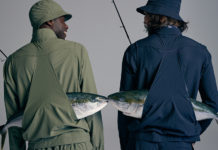Despite impact from the coronavirus pandemic, the Arkansas Fly Fishers had a very productive year in 2020.
Tyler Pittman, president of the Arkansas Fly Fishers, recently shared what amounts to an annual report for the organization. A highly accelerated interest in fishing in general spilled over to fly fishing, so it is not surprising that membership in the club actually increased in a very difficult year.
“We have members in eleven states and we are attracting women and younger new members at a pace we’ve not seen in our nearly 50-year history,” Pittman wrote. “We added over 60 new members in 2020 alone.”
The fly fishing community is acutely tuned to managing the state’s cold water fisheries on the White, North Fork and Little Red rivers, and it has contributed significantly to improving the quality of the trout fishing on those waters. In February, the Arkansas Fly Fishers hosted Christy Graham, the Arkansas Game and Fish Commission’s trout program coordinator, in a virtual town hall-style meeting.
About this time in 2020, nearly 100 members volunteered time and labor to a highly publicized project involving the Little Red River Foundation and the Game and Fish Commission to establish Bonneville Cutthroat Trout on the Little Red River. Working within covid-19 protocols, the partners sowed the seeds of what should become a very popular and productive fishing opportunity.
The group also adapted its Project Healing Waters program for disabled veterans program to a virtual environment that meets weekly. The number of participants increased in this environment.
The Arkansas Fly Fishers has a heart for young people, as evidenced by the teens who attend its live meetings when they are held. To that end, the club supported virtual outdoor skills youth camps that delivered a fly fishing curriculum to more than 200 youths. Participants could earn a Boy Scout Fly Fishing merit badge.
Enhancing its “Casting Couch Program,” the club hosted safe, small events such as a Duane Hada painting class and casting lessons. Speaking of Hada, his Rivertown Gallery in Mountain Home is a must-see destination for anybody visiting northern Arkansas.
When the club meets in person, it has a popular Fly of the Month competition. The club has been holding the competitions digitally, enabling fly tiers to compete for nearly 1,000 votes so far.
The club also has been creative in finding new ways to engage the community. An example is working with the Little Rock Air Force Base to enable volunteers to regularly provide recreational programs for service members and their families.
“We know we will fight covid for a bit longer, but we are already planning to safely transition to the in person events as health guidelines permit,” Pittman wrote. “We are making plans to host a Fall Fly Fishing Fair and host the 2021 Fly Fishing Film Tour in October. We have also secured nationally known speakers.”
In coming months, the Arkansas Fly Fishers virtually will host Tim Flagler of Tightline Productions, Skip Morris and Bob Clouser.
For information about the Arkansas Fly Fishers, visit www.arkansasflyfishers.com.
Zebra mussels in pet stores
According to the Arkansas Game and Fish Commission, some aquarium and pet stores have been selling an aquarium product that may contain zebra mussels, a highly invasive species that can severely damage the food chain and infrastructure in native lakes and rivers.
Marimo balls, or moss balls, are a type of algae used in aquariums that help absorb ammonia and other waste from aquarium fish, and provide oxygen while preventing the growth of other algae. It is shipped from a company in California that imports the plant from Ukraine, where zebra mussels are native. The mussels were first detected in Seattle by a pet store employee who notified the authorities.
Game and Fish Commission staff found the product for sale in some stores, and some of the moss balls contained zebra mussels. Some stores discontinued selling the product, but not all.
Anyone who purchased moss for their aquariums or purchased fish with the moss included in the bag should let it dry away from a natural waterway and dispose of it in a trash can. Do not flush it down a toilet.
Aquariums that may have contained the zebra mussels can be drained and disinfected with a household bleach solution at 1 cup of bleach per gallon of water. Filters, pumps and gravel should be treated with the bleach solution or allowed to dry completely for at least seven days.
Credit: Source link































